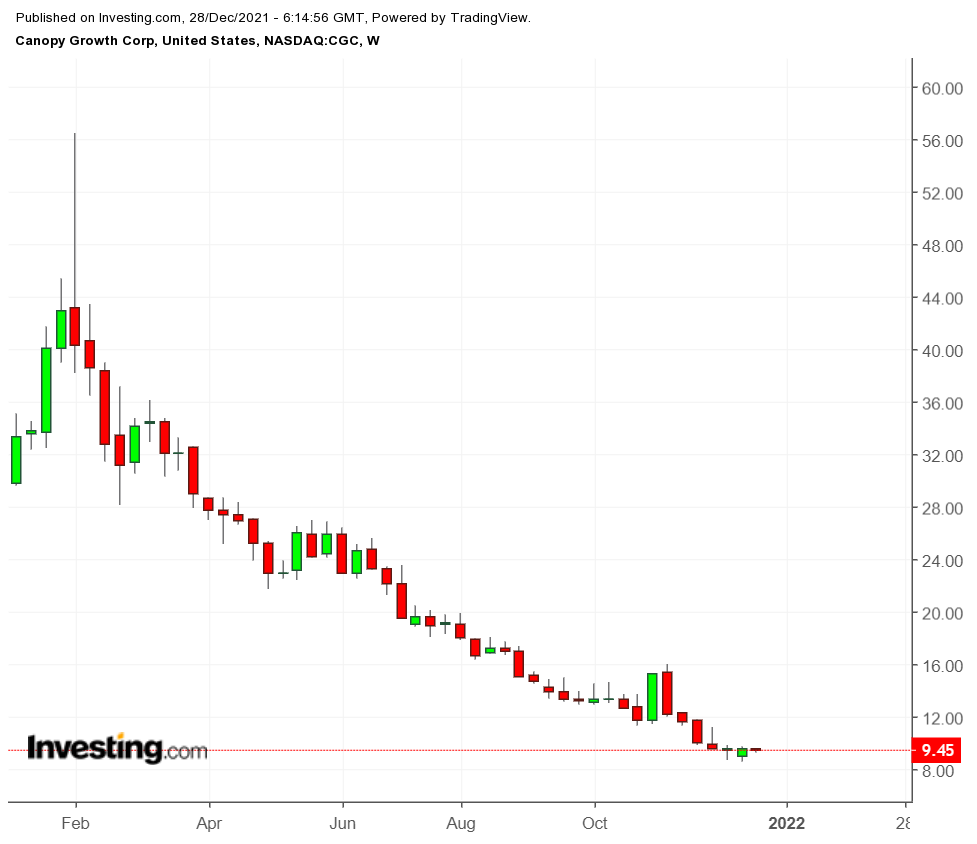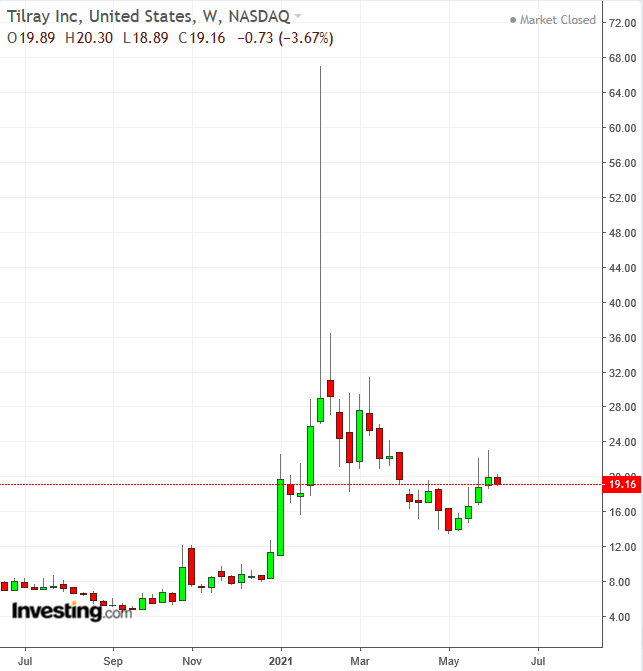Shares of Canopy Growth (NASDAQ:CGC) (TSX:WEED) took a bit of a hit Monday, after the cannabis grower was downgraded by a single analyst.

Shares of the Ontario, Canada-based company dipped about 3.75% in quiet trading intraday before regaining some of that slippage to close at $9.45, down 1.77%. The downturn reportedly was in response to a ratings downgrade by Piper Sandler, which cut its target price a full $4 a share to $7.
Earlier this month, Canopy was praised when it announced it would sell a European subsidiary known as C3 Cannabinoid Compound Company GmbH. The German-based company, which develops and manufactures pharmaceutical products, will be sold to Dermapharm Holding (DE:DMPG), which is also headquartered in the city of Grünwald.
The deal would see Canopy accept a cash payment of approximately 80 million euros (US$90.62M) with additional payments that could reach 46.2 million euros (US$52.34M) upon C3 hitting certain performance targets.
The sale is widely seen as a move by Canopy to consolidate its efforts by withdrawing from the relatively small European medical marijuana market.
Canopy Growth has seen its stock drop almost 63% in the past year.
Tilray Buys Another Round
A few weeks after Tilray (NASDAQ:TLRY) announced it was purchasing the U.S. Breckenridge Distillery for $102.9 million in stock, the New York City-based cannabis company continued along the same path, announcing the acquisition of Green Flash Brewing and the Alpine Beer Company last week.
The acquisitions will be made by Tilray’s SweetWater Brewery company and are part of the medical cannabis company’s strategy to position itself more broadly ahead of the eventual US federal legalization of marijuana and rapidly scale its cannabis-infused beverage product line.
The announcement did not give Tilray stock much of a bounce. Last week, shares of TLRY opened at $7.51. Yesterday, they closed at $7.61, down close to 3% on the day.

As For Actual US Federal Legalization…
As 2021 comes to close, the biggest event that has affected stocks in the cannabis sector is clearly something that did not happen: the legalization of marijuana in the US.
The hope that federal legislation would throw open the doors to the world’s largest market for the cannabis sector has been dimmed, as law-makers pushed the process into 2022 and, quite possibly could delay further—to after the next presidential election in 2024.
The latest move is definitely more of a setback than a routine delay. It came earlier this month, when marijuana banking reform was excluded from a Congressional defense bill. The exclusion was a negotiated result between the House of Representatives and the Senate. The House withdrew an amendment to the bill that used language from the SAFE Banking Act that would allow federally regulated institutions like banks to provide services to marijuana companies.
Now, the timeline for federal legalization is significantly blurred.
Still, cannabis sales in the state of Michigan increased 66.1% in November when compared with the same month last year, reaching $153 million. Closing in on its second anniversary of cannabis sales, the state’s market continues to skyrocket.
Last month, cannabis became Michigan’s third most valuable crop, trailing only corn and soybeans. New Cannabis Ventures reported that, while overall cannabis sales grew significantly year-over-year, the growth is not equal across categories: medical sales fell 14% to $31.9 million, while adult-use sales increased 121% to $120.8 million.
November was the fifth best month in the history of the state’s cannabis market, with sales decreasing sequentially 6.6% from October of this year.
Which stock should you buy in your very next trade?
With valuations skyrocketing in 2024, many investors are uneasy putting more money into stocks. Unsure where to invest next? Get access to our proven portfolios and discover high-potential opportunities.
In 2024 alone, ProPicks AI identified 2 stocks that surged over 150%, 4 additional stocks that leaped over 30%, and 3 more that climbed over 25%. That's an impressive track record.
With portfolios tailored for Dow stocks, S&P stocks, Tech stocks, and Mid Cap stocks, you can explore various wealth-building strategies.
